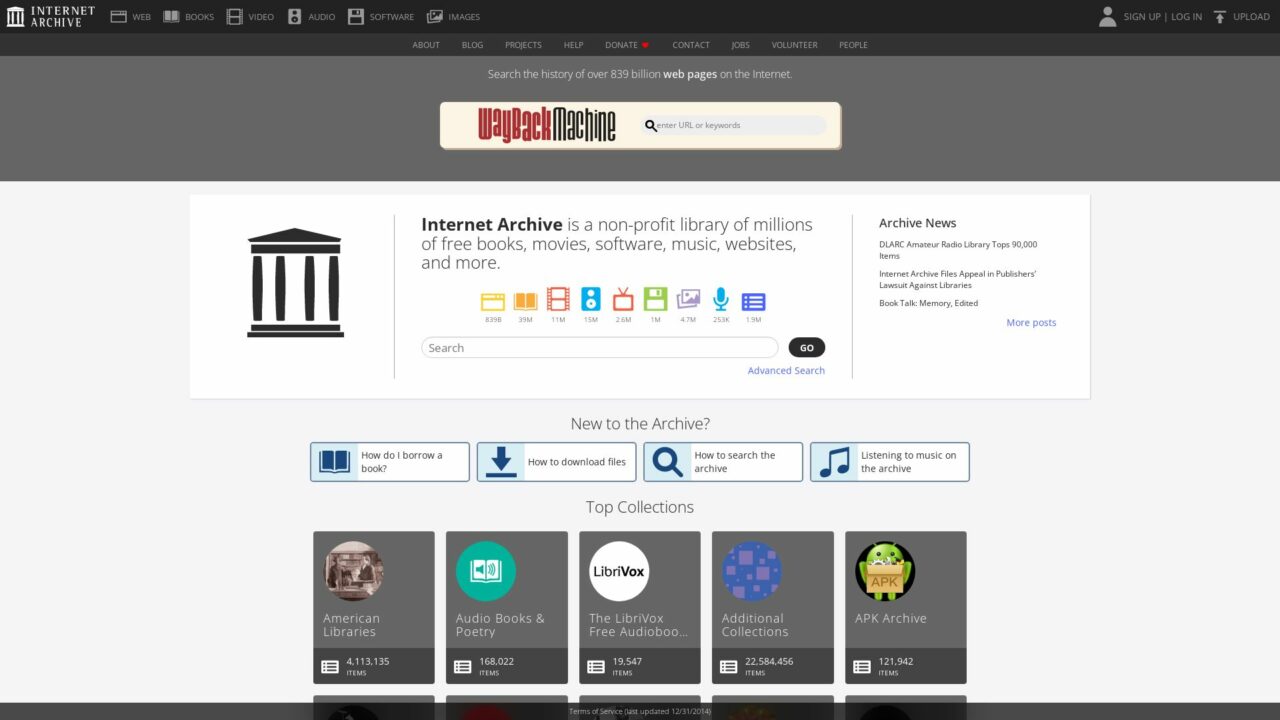The Internet Archive, found at archive.org, is a nonprofit digital library offering free access to a vast collection of digital content. Launched in 1996, its mission is to provide “Universal Access to All Knowledge.” The platform archives web pages, books, audio recordings, videos, images, and software, allowing users to explore historical content and cultural artifacts. The Wayback Machine, one of its most popular features, enables users to view archived versions of web pages, preserving the history of the internet.
Major Highlights
- Wayback Machine: Access over 500 billion archived web pages, allowing users to see how websites have evolved over time.
- Extensive Media Library: Includes millions of books, movies, music tracks, and software, all available for free download or streaming.
- Public Domain Content: Most materials are in the public domain, ensuring free and legal access to a wide range of resources.
- User Contributions: Registered users can upload their own content, contributing to the ever-growing digital library.
- Controlled Digital Lending: Libraries can lend digital versions of books, maintaining the same number of copies as physical books.
- Cultural Preservation: Collaborates with communities worldwide to preserve cultural artifacts, such as the Balinese Palm Leaf manuscripts.
- Educational Resources: Provides access to scholarly articles, research papers, and educational materials.
- Vintage Games: Offers a collection of classic MS-DOS games that can be played directly in the browser.
- Old Time Radio Shows: Features a collection of historical radio broadcasts, preserving a unique aspect of cultural history.
- Privacy Focused: Ensures complete reader privacy, especially important for those borrowing digital books.
Use Cases
- Historical Research: Scholars and historians can access archived web pages and digital artifacts for research purposes.
- Educational Purposes: Teachers and students can utilize the extensive collection of books and educational materials for learning and teaching.
- Cultural Preservation: Communities can preserve and share their cultural artifacts and historical documents.
- Entertainment: Users can enjoy vintage games, classic movies, and old-time radio shows.
- Legal Reference: Lawyers and researchers can reference historical web pages and documents for legal cases.
- Personal Interest: Individuals can explore past versions of their favorite websites or discover old media content.
- Digital Archiving: Organizations and individuals can use the platform to archive their digital content for long-term preservation.
- Library Services: Libraries can extend their digital lending capabilities through the platform’s controlled digital lending feature.
- Genealogy Research: Genealogists can find historical documents and records that aid in tracing family histories.
- Data Recovery: Recover lost or deleted web pages and digital content through the Wayback Machine.


Leave a Reply